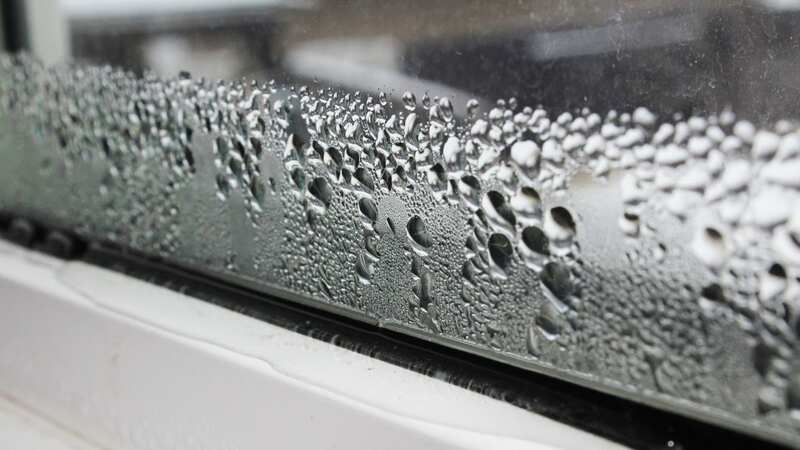Stop condensation on windows with six beautiful houseplants

It's inevitable around this time of year for condensation to start to appear on our windows - however, it can cause issues if left untreated in our homes.
As the temperatures plummet, you may start to notice the water droplets appear. Condensation is one of the most common forms of dampness and while it may not seem like a big deal in the moment it can lead to some unhealthy black growths. It can be spotted on windows and some walls but when left untreated, can lead to mould. This can then cause damage to properties and can also trigger health issues such as asthma.
However there are ways you can prevent this from happening, and they can be easy home changes. Experts reveal that certain houseplants can not only make a room look good, but they can also help to stop condensation from forming by decreasing humidity. You want to pick plants that have the ability to absorb dew, fog and other moisture in the air through their leaves. Julie Decosta, plant expert at BackyardBoss the best houseplants for this, that are also considerably low maintenance too, as reported by The Express.
English Ivy
The first plant Julie recommends is the English Ivy. The low-cost leafy plant as it's a great "filter" of air toxins. It helps fight mould and is also good for people with specific health conditions. Julie explained: "Ivy is also particularly good for allergy sufferers as it removes toxins from the air. This is also a good choice of plant for removing formaldehyde or benzene. It’s one of the most successful varieties at this household task." However, it's important to note that Ivy is toxic to animals, so pet owners should keep it out of reach.
Peace Lily
Not only a pretty plant, but a Peace Lily also is an easy plant to grow and maintain - and loves humidity. Julie shared: "The peace lily loves humidity and can easily absorb mould spores by using them at the root level as a food source. It also improves your air quality by 60 per cent. The plant is exceptional at deteriorating and neutralising toxins like carbon monoxide and formaldehyde." Although like Ivy, can be toxic to pets.
 Cleaning expert shares bathroom mould magnet that people always forget to clean
Cleaning expert shares bathroom mould magnet that people always forget to clean
Areca Palm
You may see these usually on holiday, but a palm can be a good choice in reducing humidity too. Usually swaying in a warm breeze, it will definitely give your room a tropical feel. Not only will it reduce moisture, but it also helps to turn carbon dioxide into oxygen.
Spider Plant
The perfect plant for those who aren't that much of a green thumb gardener. Known for being "easy to grow and hard to kill" a spider plant will be a great addition to reducing moisture in rooms. "Spider plants absorb mould in their leaves and they also take care of dust allergens as well as toxins such as carbon monoxide," Julie stated, and these can also remove up to 90 per cent of toxins in the air in two days.
Snake Plant
Another easy plant to keep is a snake plant. Perhaps the lowest maintenance, you can get away with only watering these plants once a month. "These plants produce fresh oxygen and absorb airborne mould by retaining moisture and humidity which keeps the dampness away. Imagine the benefits if you had a cluster of snake plants in your home," stated Julie.
Boston Fern
This plant balances humidity levels, and will thrive in moist climates and also helps to purify air by getting rid of formaldehyde which is "emitted from paper products and carpets" which will mean "less accumulation of mould" in your home.
Read more similar news:
Comments:
comments powered by Disqus

































